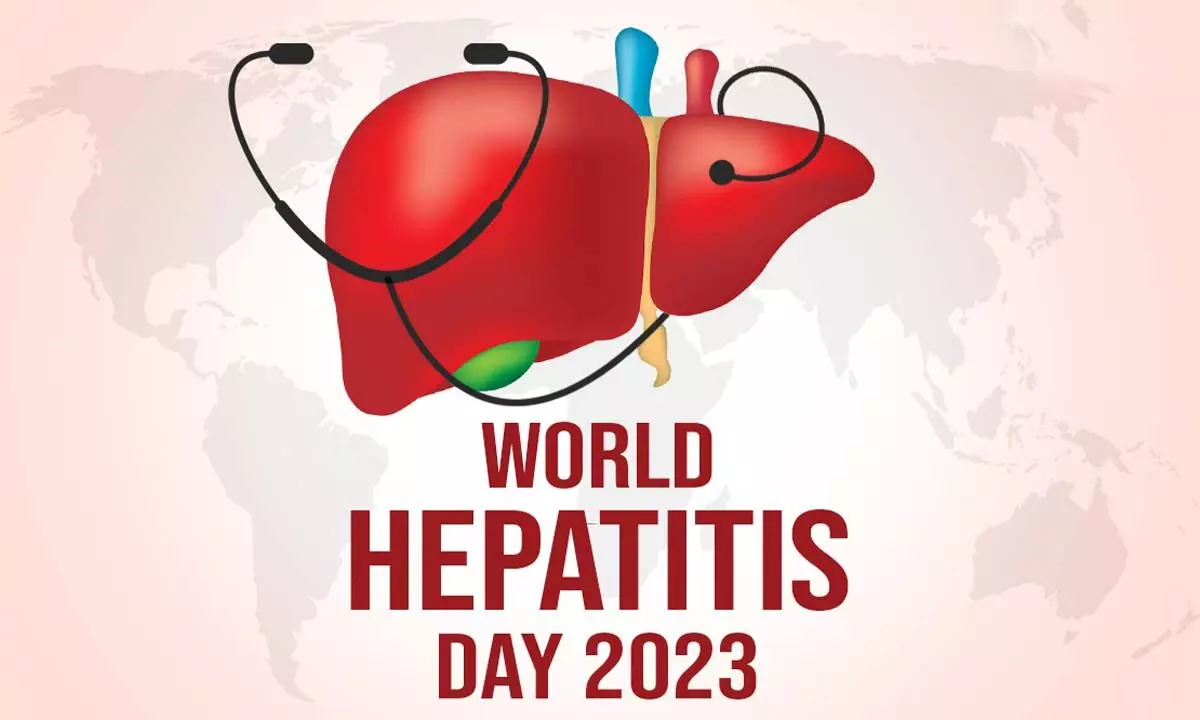World Hepatitis Day 2023: What You Need to Know

World Hepatitis Day, commemorated on July 28th, is an international initiative designed to increase hepatitis consciousness and advocate liver health.
World Hepatitis Day, commemorated on July 28th, is an international initiative designed to increase hepatitis consciousness and advocate liver health. With a billion individuals worldwide impacted by hepatitis, this day serves as a vital cautionary tale of the disease's global impact and the importance of taking proactive measures to protect our liver health.Dr. Naresh Bhat, Chief of Gastroenterology, Aster CMI Hospital, Bangalore, talks about the causes and prevalence.
Understanding Hepatitis: Types, Causes, and Prevalence
Hepatitis is a liver inflammation that comes in five forms: Hepatitis A, B, C, D, and E. Each kind is brought about by a different virus and is spread via contaminated food, water, or bodily fluids. Hepatitis A and E are typically acute infections, whereas Hepatitis B, C, and D can become chronic and cause serious harm to the liver if untreated.
The global occurrence of hepatitis is a significant threat to public health. According to the World Health Organization (WHO), nearly 325 million people have chronic hepatitis B or C, and these viral infections kill approximately 1.4 million people each year. The spread of hepatitis is aided significantly by a lack of awareness and access to healthcare services. It is critical to battle the disease's stigma and promote early detection and prevention initiatives.
The Vital Role of the Liver in Maintaining Health
The liver is an important organ that is in charge of many essential body functions, including detoxification, metabolism, and protein production. When the liver is harmed by infections or lifestyle factors, it can cause a variety of health problems. Fatty liver disease, cirrhosis, and liver cancer are popular liver-related issues that can manifest as fatigue, jaundice, abdominal pain, and unexplained weight loss. The importance of early detection and prevention in maintaining liver health cannot be overstated. Regular health checks and screenings can aid in the early detection of any liver-related issues, allowing for timely intervention and better outcomes.
Tips for Optimal Liver Care
● Healthy Lifestyle Habits: A well-balanced diet is essential for liver health. Include a variety of fruits and vegetables, whole grains, and lean proteins in your daily diet. Antioxidant-rich foods, such as berries, spinach, and nuts, can help protect the liver from free radical damage. Daily exercise not only aids in weight management but also improves blood circulation and liver function. On most days of the week, try to get in thirty minutes of moderate exercise. Excessive alcohol consumption and substance abuse are harmful to the liver. If you drink alcohol, do so in moderation and keep your limits in mind.
● Hydration and Liver Detoxification: Staying hydrated is critical for liver health. Water aids detoxification by flushing out toxins and waste products from the liver. Consume a minimum of 8-10 glasses of water per day. Include liver-friendly beverages like green tea and herbal infusions in your diet. These drinks contain antioxidants and compounds that can benefit liver health and detoxification.
● Monitoring and Managing Medications: Be wary of medications that could harm your liver. When taken in excess or for an extended period of time, certain drugs can cause liver damage. Consult with your doctor before starting any new medications, and ask about liver-friendly alternatives if necessary.
Hepatitis Vaccinations
● Hepatitis A Vaccine: This vaccine protects against the Hepatitis A virus, which is primarily spread through contaminated food and water. Individuals travelling to areas with high hepatitis A prevalence and those in danger from contact should take it.
● Hepatitis B Vaccine: The Hepatitis B vaccine is critical for the avoidance of the spread of the Hepatitis B virus, which is spread through blood, sexual contact, or transmission from an infected mother to her newborn. It is usually given in a series of doses and is suitable for people of all ages.
● Hepatitis C Vaccine: There is currently no Hepatitis C vaccine. Prevention efforts, such as avoiding infected blood and practising safe sex, can, however, substantially decrease the likelihood of transmission.
The Role of Healthcare Providers in Hepatitis Prevention
Regular health checks and screenings are critical for detecting hepatitis and other liver-related issues early. Healthcare providers play an important role in increasing vaccination awareness and access. They can make a difference in the community by enabling people to get examined for hepatitis and offering precise details about vaccinations.








